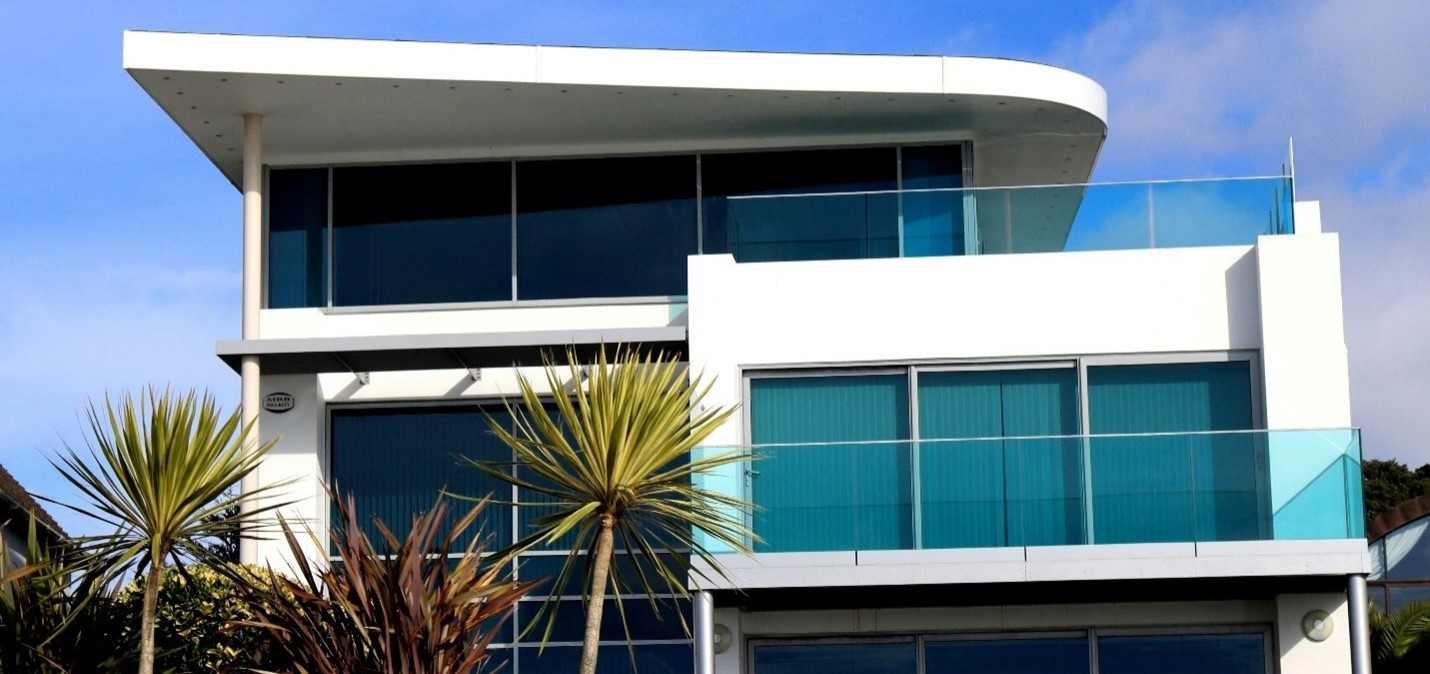
Florida is a snowbird’s paradise. It’s no surprise that condos make up a major portion of the market.
Recently, though, Florida condos are presenting specific challenges. They’re getting hard to finance. Home buyers in Florida can expect to put at least 25% down. For coastal homes, which lenders consider risky, the expected down payment can be significantly higher.
Needless to say, this is putting off buyers. And it’s putting a damper on the Sunshine State’s housing market. Plenty of Floridians want to sell, while the pool of interested buyers is shrinking. So condo prices have come down from their highs. Miami homes are 3% cheaper (at $385K). And in Jacksonville, prices have dipped 7% (to $254K).
Anyone thinking about acquiring or transferring a Florida deed needs a clear understanding of its value. So let’s look more closely at the Florida market today.
The Gulf Coast Has Shifted Into a Buyer’s Market.
The pandemic sent waves of buyers into Florida. Builders stepped up to bolster supply. Maybe too much so? The boom has run its course. Now, homes are sitting on the market and property values have cooled.
In the world of condos, Florida’s situation is unusual. Condo values across the country are generally trending up.
On Florida’s west coast, sellers are trying to compete with new construction. And they’re having to agree to price cuts as buyers gain leverage.
Of the top ten cities where housing availability has shot up over the past year, six are in Florida: Cape Coral, Sarasota, West Palm Beach, Tampa, Orlando, and Fort Lauderdale.
In the Sarasota area, sale prices have actually gone down over the past year. Again, this is unusual. Overall, U.S. real estate prices continue to hover near all-time highs.
Today, Cape Coral owners need a full month more to arrive at that all-important deed transfer than they needed a year ago. Meanwhile, there’s plenty for buyers to see in and around Sarasota, Fort Myers, and Cape Coral. Listings are abundant along the Gulf Coast — more so than anywhere else in the country. And any abundance of listings helps buyers negotiate lower prices.
It’s a Good Time to Be a Florida Condo Buyer—But Diligence Is Due.

In one sense, it’s a good time to buy in at least some areas in Florida. Home prices are going down, to attract buyers who balk at rising association dues and insurance prices.
Yes, potential buyers soon learn that Florida real estate insurance prices have skyrocketed. Prices really took off after the 2021 tragedy at the Champlain Towers South that killed 98 people. Federal investigators are connecting the collapse of the Florida condo structure to pool deck support columns that weren’t up to code.
The state tightened its engineering and financial rules for condos. Suddenly, unit owners faced serious hikes in their monthly association dues. They got hit with staggering bills for special assessments. Obvious questions arose for many owners and prospective buyers:
- How many Florida condo buildings have latent vulnerabilities?
- How many have enough funds in their reserve accounts?
- Could the unit owners — and many are elders on fixed incomes — cope with the inspections, assessments, and engineering projects to come?
- How are mortgage companies supposed to protect their collateral in a time of new financial risks?
The questions keep coming. Yet the building continues. The newest condo structures might meet current building standards, but…
Rising seas and stronger storms keep raising the bar. Every eight years or so, Florida’s sea level has risen by another inch.
Storm surges can flood homes. Due diligence is critical. Florida doesn’t have flood disclosure laws requiring communication to potential buyers.
Know Before You Go: What’s Your Insurance Plan?
Many Floridians have watched their insurance premiums go up. It’s being reported that the average Floridian pays nearly $11K a year for homeowners’ insurance. Seriously. Here’s Insurify.com on the matter:
Florida homeowners pay the most for home insurance, with an average annual rate of $10,996 in 2023. Insurify predicts costs will increase an additional 7% in 2024 to $11,759.
And 12% of policy holders who took part in a recent Redfin survey said their company decided to drop them. No less than 11 corporations have wound down their Florida insurance operations in recent years. A number of big names in the business have left the Florida market, often citing weather events, floods, hurricane damage, and legal costs.
What does a Florida homeowner do after being dropped by their company? Some go without insurance. Some fork over more money to the few companies still operating in the state. Some pay more than ever for coverage from the state’s Citizens Property Insurance Corp.
Major commercial insurers have backed out of the Sunshine State in recent years. Florida’s state-backed insurer, Citizens Property Insurance Corporation, now services more than a million policies.
And some Floridians are selling to move to another state. That said, according to Redfin more people are entering than leaving the state.
Is the Deed Still Good After Erosion?
Erosion on waterfront property is a valid concern. The Florida legislature acknowledges coastal erosion as “a statewide problem.”
Of course, many Floridians hold deeds to property along the shoreline. Their property lines are not hard and fast like the boundaries of inland properties. They’re subject to erosion. The word erosion here has a legal meaning: gradual, imperceptible loss of land into water.
Now, what if you were deeded property, and rising waters claim it? Under the Florida state Constitution, “permanently submerged” shoreline land is held by the state in trust for the people.
Under the law, a piece of land’s boundary actually changes when land is gradually eroded by sea level rise (or another factor). The title to your underwater land reverts to the state.
Real Estate Is Changing. Be an Educated Deed Holder.
Wherever you might decide to take title to property, consider the long term. Take time to learn the factors most likely to impact what you have vested through your deed.
Note to our readers: This article, like all articles on this website, is for general information, and to help our readers spot issues. Readers must carry out their own due diligence. Deeds.com cannot provide legal advice. For legal guidance in particular circumstances, consult a real estate attorney in your state.
Supporting References
Fla. Const. art. X, § 11.
Lily Katz for RedfinTM Corporation’s Real Estate News: 70% of Florida Homeowners Have Seen Rise in Insurance Costs or Changes in Coverage – Survey (Apr. 17, 2024). See also: Home Prices Stagnate in Florida and Texas as Supply Soars (Apr. 25, 2024). Redfin cites figures sourced from a Redfin-commissioned Qualtrics survey carried out in February 2024.
Dan Latu for Business Insider: Florida Condo Owners Are Stuck in a “Train Wreck” as Prices Drop and Mounting Insurance Rates and HOA Fees Scare Away Buyers (Mar. 10, 2024).
Greg Allen for WVIA (National Public Radio via NPR.org):Investigators Narrow Search Into Cause of Deadly Florida Condo Collapse in Surfside (Mar. 8, 2024).
Deeds.com: Insurers Hike Prices, Pointing to Climate. Investors See New Opportunities (Dec. 5, 2022).
And as linked.
More on topics: Disasters, emergencies, titles & mortgages, Insuring climate risks
Photo credits: Expect Best and Tara Winstead, via Pexels/Canva.
